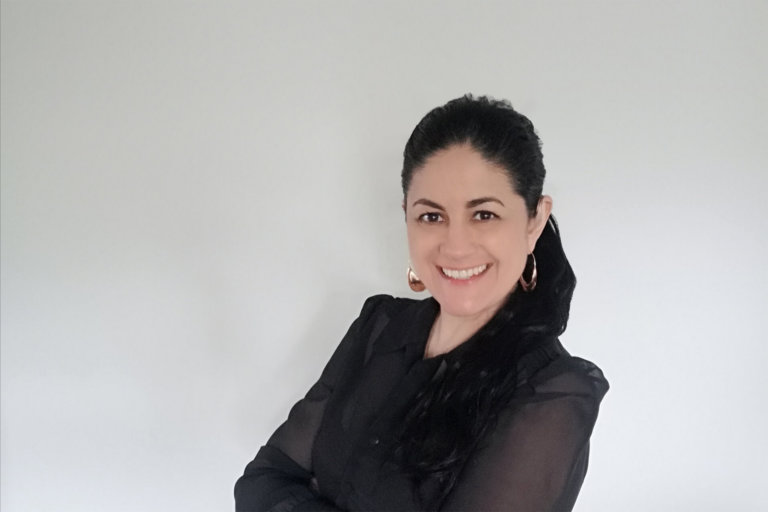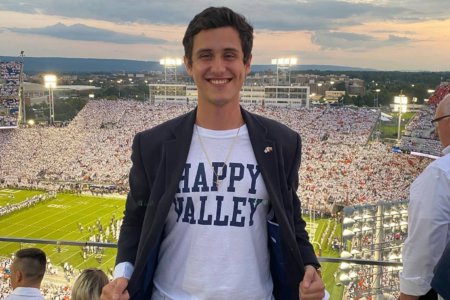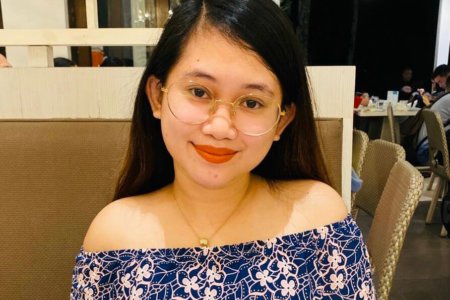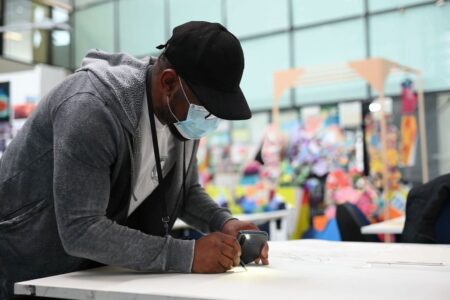
Fabiola Campbell has a complicated story. She was born in Australia but grew up in Venezuela and then returned to Australia as a migrant feeling out of place.
From being an MBA graduate at the Swinburne University of Technology to finding a job in Australia, she struggled with identity and finding a sense of belonging, describing the experience as the “death of her superwoman.”
What she went through was humiliating but transformative — she grew strong enough to found PMW (Professional Migrant Women), an organisation that deals with issues like discrimination, isolation, mental health issues, and domestic violence, amongst other challenges and hardships.
We caught up with Campbell to know more about her journey and her future plans to maximise the potential and contribution of professional migrant women through meaningful employment.
Before being an MBA graduate, you studied criminology back in Venezuela. Where did this interest come from?
I am passionate about human behaviour and my interest in criminology came from a place where I felt I could add value and make things right. My curiosity for human behaviour plus what drives conduct and motivation became my passion.
I volunteered at the male precinct at the local prison in my hometown. This was an intense and traumatic experience.
There, I taught high school subjects to some of the inmates who wanted to graduate and earn a certificate. One of my students, a week before he was due to be released, got killed as he was completing a seven-year jail term. This was very sad.
View this post on Instagram
Did that lead to your interest in studying criminology?
Well, it shifted my focus. Before I had wanted to study criminal behaviour.
After that, I wanted to do everything I could to prevent people from ending up in a place like that prison. Which brought me to focus on crime prevention and community development.
What made you pursue your MBA in Australia?
It’s not a romantic story. My parents lived in Australia (as my father studied there) and I was born there. Once my father finished his studies, we moved back to Venezuela.
My childhood dream was to come back to Australia as my father was very passionate about the country.
How did you manage to pay for your studies there?
To shed some light on my perspective, I had to save money for a whole year while working in a professional job to be able to afford a one-way ticket to Australia.
When I arrived, a friend of mine who was familiar with the system and had worked with migrants for a long time told me I would need a local qualification. The most highly-regarded one was the MBA.
He said it would help me ease into the Australian system. Because I have an Australian passport, the government helps finance your studies. It’s sort of like a student loan but you don’t have to pre-qualify.
As an MBA graduate, what were your key takeaways from your programme?
Business skills that helped me get my first job. Being able to read, write and present in English on a professional level. I also learned business-relevant terms.
The management skills from my MBA experience came very much handy as for the last two years I’ve been running my own organisation. It gave me a foundation and basic knowledge.
If you could turn back time, would you still take the MBA or do something else?
I think I would have taken an alternative. I don’t know what but probably something related to the community. After my MBA, I managed a community centre for a while and did a diploma in coaching.
Then, after that, I did a course in training and assessment. However, I learnt that networking is important. Connecting and helping people achieve their goals will, in turn, help you achieve yours. This is especially crucial for the migrant community.
View this post on Instagram
Was networking the main thing for you at your MBA programme?
As migrants in a foreign country, it’s essential to get to know the local culture and think the foreign way. Through this, you gain insight into the industries, specific jobs and organisations. Once you build relationships, that’s when the magic happens.
What challenges did you face as a migrant looking for a job in Australia?
A quote that will always stick with me is this one: “Your desperation becomes your inspiration.” As a person, I considered myself talented and someone who had potential.
I thought I was smart but, apparently, that wasn’t obvious to anyone else. At that time, I don’t think I knew how to communicate my value. I got to a point in my career where I didn’t feel seen.
Do you think it was because of where you came from or because you’re part of a minority group in Australia?
I think so. It didn’t make sense to me how frustrated I was about my job and more about the fact that I didn’t get the opportunities I sought. I could see my peers getting them and I felt very overlooked.
I wanted to do something where I could bring my skills and add real value which was a real people moment for me. It all began when I attended a conference for women in local government that had about 500 professionals.
View this post on Instagram
The speaker lineup consisted of smart, Australian women. The last speaker and the keynote one was a migrant woman from Africa which moved something inside me. It made me think of representation and I saw what I wanted to do because if she could do it, so could I.
When I connected with her, I asked her all sorts of questions. The most important one was: “How can I connect with women?”.
Is this how your organisation, Professional Migrant Women, began?
So, that keynote speaker became my default mentor. I listened to her stories and struggles about fleeing her country, going to refugee camps and her journey to Australia. I felt my story compared to hers was nothing.
The only thing I have are privileges. I was born in Australia, I have an Australian passport and I’m highly educated.
A year went by while I learned about the space of diversity and women along with privilege and equity. At a conference, one day, I put my hand up to speak at an event for Latin American women.
I spoke about my story about finding employment in Australia, changing careers and the struggles that came with this. I was then bombarded by audience questions who wanted to know more and connect with me.
I finally felt like I had value and that my story could help somebody else. I knew what I wanted to do — help migrant women find professional jobs in Australia.
What was the moment you were able to find your identity again?
When I was being interviewed for this one podcast, I was able to own my identity when I uttered the words: “I am a professional migrant woman.”.
I still feel super emotional about it now. For 15 years, I just tried to blend in, didn’t want my accent to be obvious, or to be perceived as a migrant.
It was the first time I owned my space. I’m a migrant, I have an accent and I don’t look like the typical Australian — it was liberating.
What would you advise fresh graduates (who perhaps don’t speak English that well) on entering Australia’s workforce?
The advice I give people time and time again is to find a tribe. A community of people that want the same things as you because through this you will help each other.
You will also not be alone with your struggles. As migrants, we are naturally isolated and we don’t have that support network.
One of the main things we do in our programme is to relate to your story. This gives comfort in the process. So, I think giving back is important.
How did you spend your first paycheck?
Ah, I can’t remember as it wasn’t very memorable. Probably paying bills.
What advice would you give to your younger self?
Be open to doing things you haven’t done before. Get out of your comfort zone.










